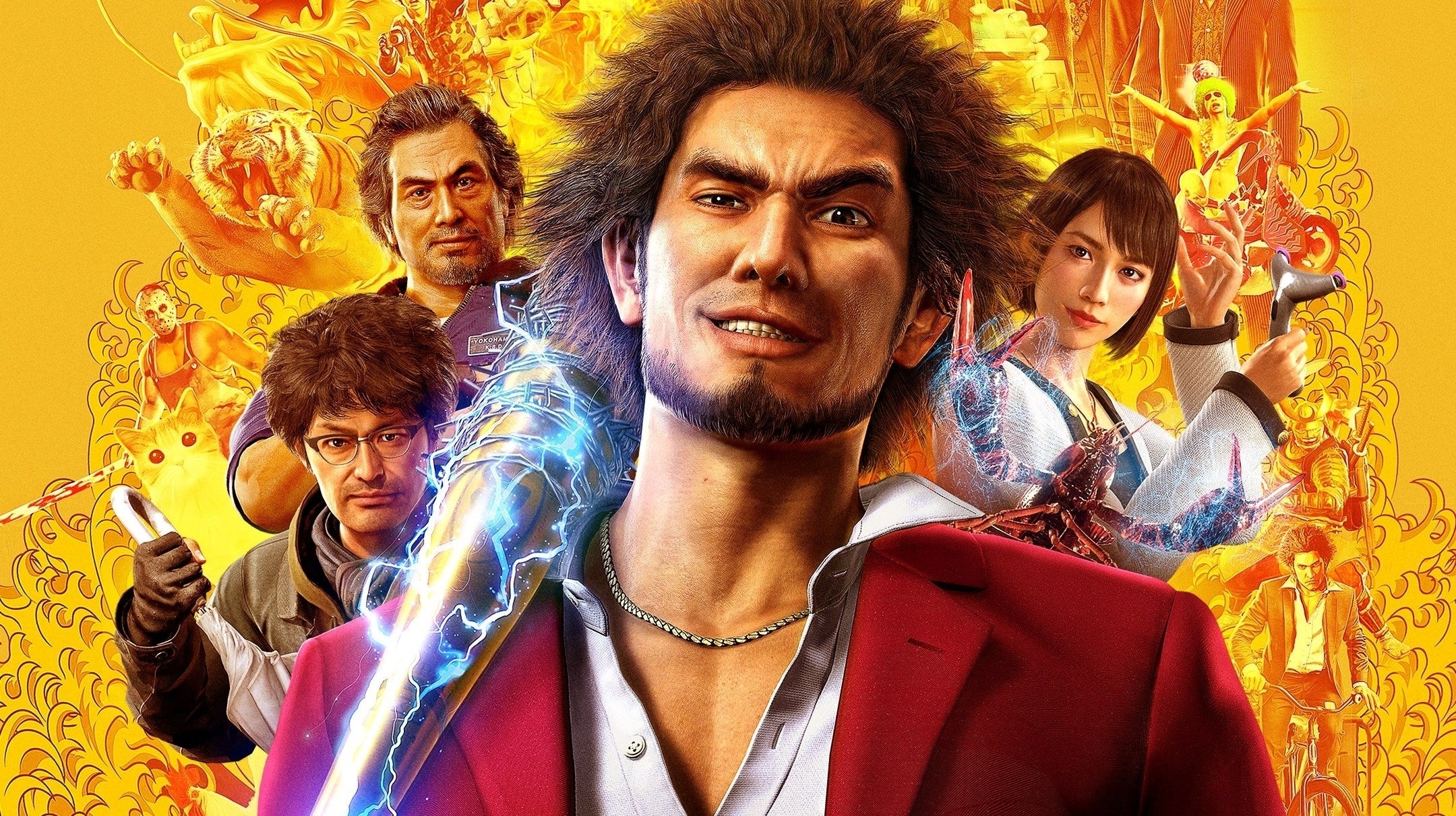Ryu Ga Gotoku Studio’s big message with Yakuza: Like a Dragon, purposefully not called Yakuza 7, is that the yakuza need to evolve – both the real and the virtual ones. Accordingly, Like a Dragon makes a break from its past in both its story and systems, ironically enough by referencing Dragon Quest, an RPG renowned for taking a staunchly traditionalist approach with its latest instalment.
Our new hero is Kasuga Ichiban, an expressive, kind-hearted doofus unlucky enough to have been born at a soapland, a massage parlour and the closest Japan gets to a brothel. Kasuga isn’t just a hero by his own designation, he’s inherently good to the point of naivety, which isn’t a good trait to have in his profession. In an echo of former Yakuza protagonist Kazuma Kiryu, his strong loyalty and belief in others lead him to go to prison for the patriarch of his yakuza family. When he gets out 18 years later, he’s greeted with a bullet to the chest and dumped in the fictional district of Isezaki Ijincho in nearby Yokohama.
Yakuza: Like a Dragon reviewDeveloper: Ryu Ga Gotoku StudioPublishers: SegaPlatform: Played on PS4Availability: Out November 10th on Xbox One, Xbox Series S/X, PS4 and PC, Xbox Series S/X, PS5 version coming March 2021
Eventually Ichiban will get entangled with the three crime syndicates that control Ijincho, but it’s a long slog to that point. I can live with the long intro that’s customary for the Yakuza franchise at this point, where you barely move your character five steps before there’s another cut scene, but here you are in the double digit hours before the game has finished explaining every aspect of its new combat system, and it takes even longer before something akin to a plot begins to emerge.
Let’s just address the elephant in the tatami-lined room: the move from action combat to a turn-based system works well. That’s mostly because fights are pretty dynamic. Both your enemies and your allies move around, so you want to make sure to down as many foes as possible with an area attack or throw them so they land near one of your friends for an automatic follow-up attack. Sometimes, albeit rarely, one of your characters will pick up objects near the enemy and use them to attack, emulating the way you could weaponize anything from traffic cones to bikes in previous games.
Attacks feel as impactful as ever, and the enemy types are a real treat – there’s anime fanboys equipped with glowsticks, perverts who slip on their own lube, shady cult members, which have somewhat of a tradition in Yakuza by now, and many, many more. The best addition comes in the form of the new job system, which you unfortunately won’t unlock until several chapters into the game. Since Ichiban starts his life in Yokohama jobless and homeless, he has to go to the job centre just like everyone else, where he and his friends are able to pick from a variety of jobs which change their appearance, attacks and special skills. It’s not only a good way to keep things fresh, it’s also very funny – as a host you spray enemies with a giant bottle of champagne, the cook wields serving platters and whisks, just to name a few. Jobs have their own levelling system however, which can make changing between them a bit of a hassle since you start each job with a noticeable cut to attack power and HP and may need to grind for a while lest you run into a main story battle underpowered.
Yakuza: Like a Dragon – The Quest Begins | PS4 Watch on YouTube
Balance becomes a real issue in battle, and it’s the system’s main downfall. An enemy’s level says next to nothing about them in terms of power – I’ve come across battles in which someone more than ten levels below me, and supposedly weak to my attacks, took ages to take out due to their ridiculously long health bar. I’ve fought boss battles in name only, with the main boss on the ground, long-defeated, while I spammed his underlings with the most effective attack each of my characters had available, swiftly growing bored.
